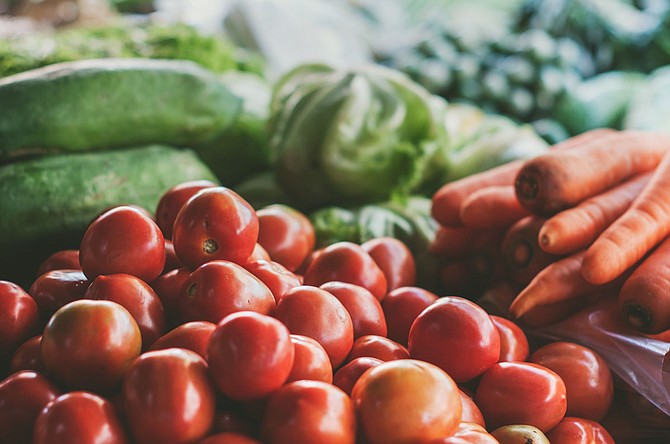Day in and day out, we interact with food in some way, whether we’re at a restaurant, a grocery store, in our pantries, on the farm or in a garden. In our world today, food is everywhere: at work, school, the gym, the library, church, even your son's baseball practice or game. There is no lack of it in many of our spaces.
Because it has such a presence in our lives, it helps shape our experience in different settings. Reminisce on your childhood. Some of your greatest memories may involve Mama's pecan pie, Grandma's country fried steak and mashed potatoes or Daddy's smoked pork butt with fresh watermelon in the summertime. In the fall, it might be a steaming, hearty beef roast with carrots, onions and red potatoes.
I have memories of picking strawberries from my aunt and uncle's backyard, or during every late summer, I received juicy sweet black plums from my uncle's plum tree. Food helps shape life's experiences, and those experiences help shape life.
History illustrates our connection to food. Life as we know it is constantly shifting based off of food access and availability. Once gatherers and hunters, we migrated through the seasons as animals migrated or searched for where new fruit would bear, but much of this came to a halt with the establishment of agriculture. Historians say agriculture began through the cultivation of wheat. Most may believe this was so we could have bread, yet there is a hypothesis that says alcohol came before bread. Thus, wheat was first used for alcohol, and bread second. However, I can jokingly argue against this because a second name for it is just liquid bread.
For thousands of years now we've cultivated many crops. Through years of the Colonialism, the African slave trade, Imperialism, both World Wars and dieting, these all have shifted what we grow and how we grow food throughout the world. We've grown masses of wheat, rice, soybeans and corn here in Mississippi for several decades as the demand has increased, but I ask, what does that actually look like in the market?
Craft beer, which uses grains like wheat, rice or barley, is on the rise. Rice and soy products like soymilk and rice milk are on the rise due to an increase in plant-based diets. The Latino population is rising across the nation, and traditional foods like corn tortillas are staples in this particular culture, so corn is rising. Our food demand is rising. People want farm to table. Why?
We are in the waves of trend. Most people in the 20th century loved the city and wanted that life and what was new, modern and chic. Today, we are migrating back to the land, to the outskirts of the city. We want the farm life, but without having to dedicate our lives to the farm. We want the rustic and farmhouse touch in our homes. These trends trickle back to food. We want local, fresh farm food—not canned, not processed, not from the big industry. We want to be reconnected to the land. We're in a cycle. I hope this time around though, it sticks.
My personal experience with food is important, and I believe most people feel the same. Whether we are critiquing a local restaurant or a friend's cooking, or in small ways like choosing food at the farmer's market or grocery store, I feel the question we ask ourselves innately is, "What kind of experience will I get from this?" Those experiences become crucial in how we feel, think and move.
Bad experiences, like tasteless food or allergies, keep us from going to a particular diner. Good experiences, like trying those turnip greens cooked with a little in-house pepper sauce with smoke turkey neck, gets us to vouch for that one place across town: "It's worth the drive!"
Food truly is an experience, one we have lost some value in, but can easily regain by reconnecting and taking a little time to cherish the process. Visit your local farmer's markets, talk to your farmers. Visit your local restaurants, talk to the chefs. Become your own backyard farmer, become your own home kitchen chef. Gather with friends and family to appreciate and bless the food presented to you each day. Hold on to these memories, and share your experience.
D.J. Baker, an Edmond, Okla., native, is a passionate gardener and farmer who is working to improve the access and quality of local food. He is the "chief gardener" of Esculent, a small consulting business centered around food. He loves good food, community and education.
This column does not necessarily reflect the opinions of the Jackson Free Press.



Comments
Use the comment form below to begin a discussion about this content.